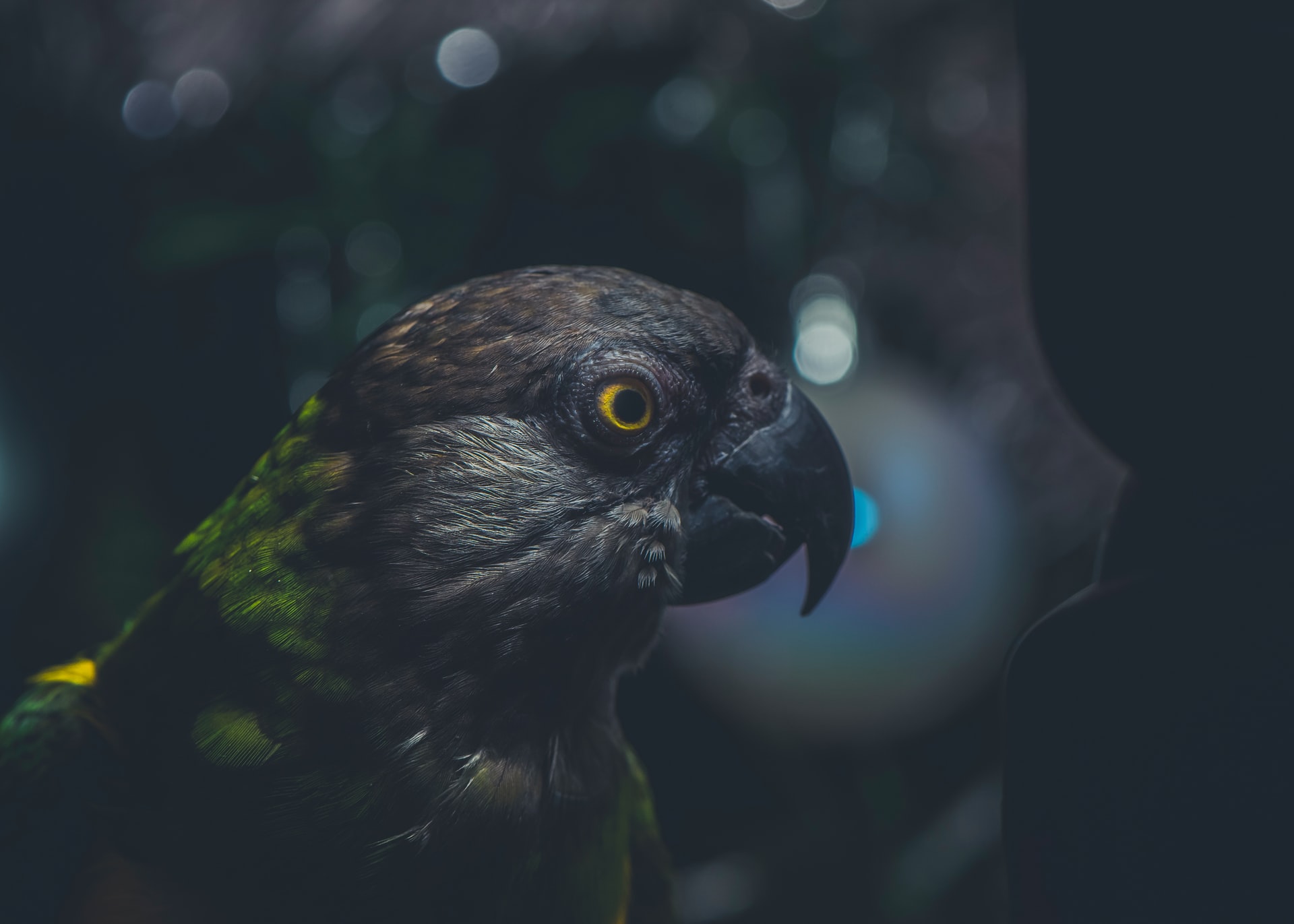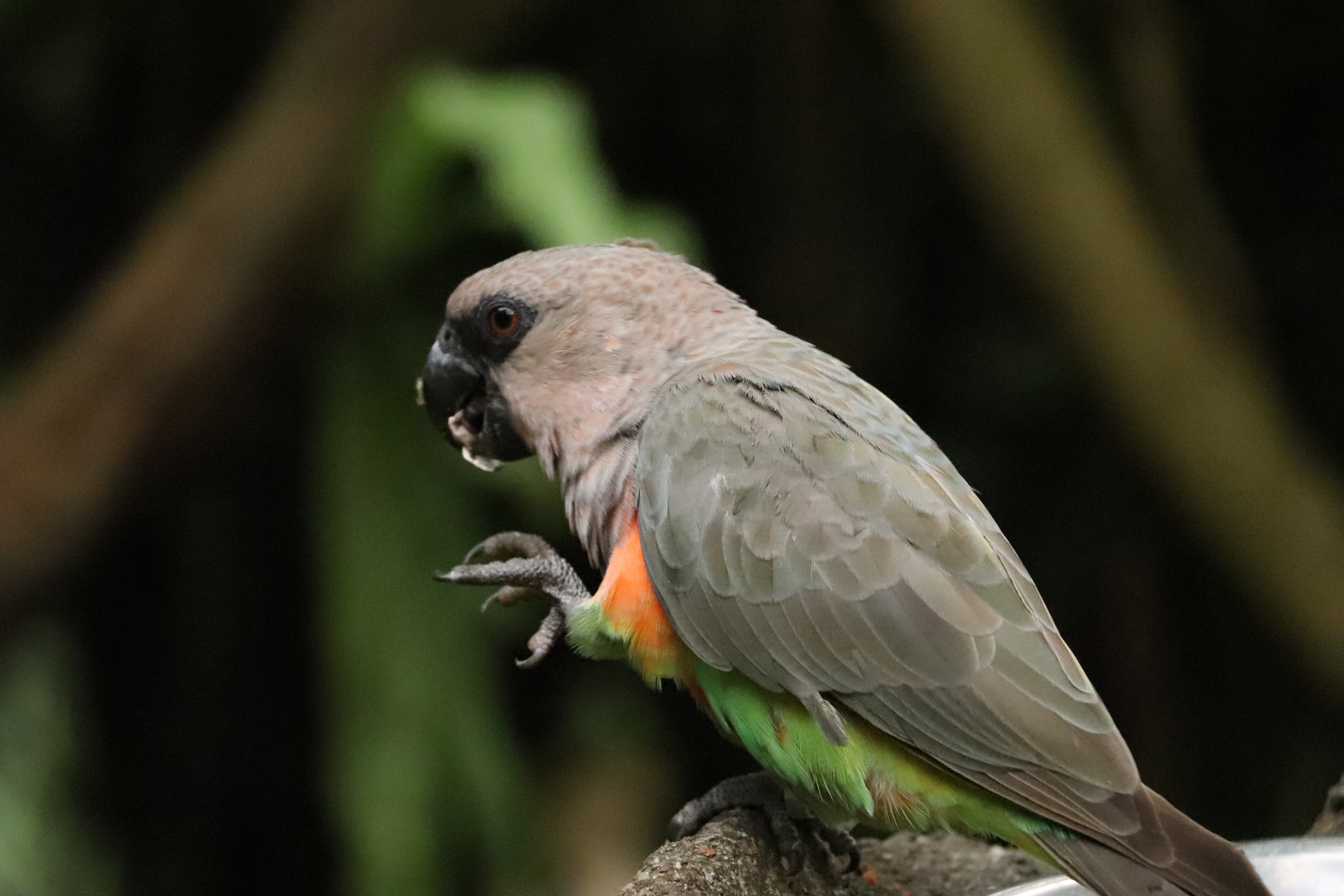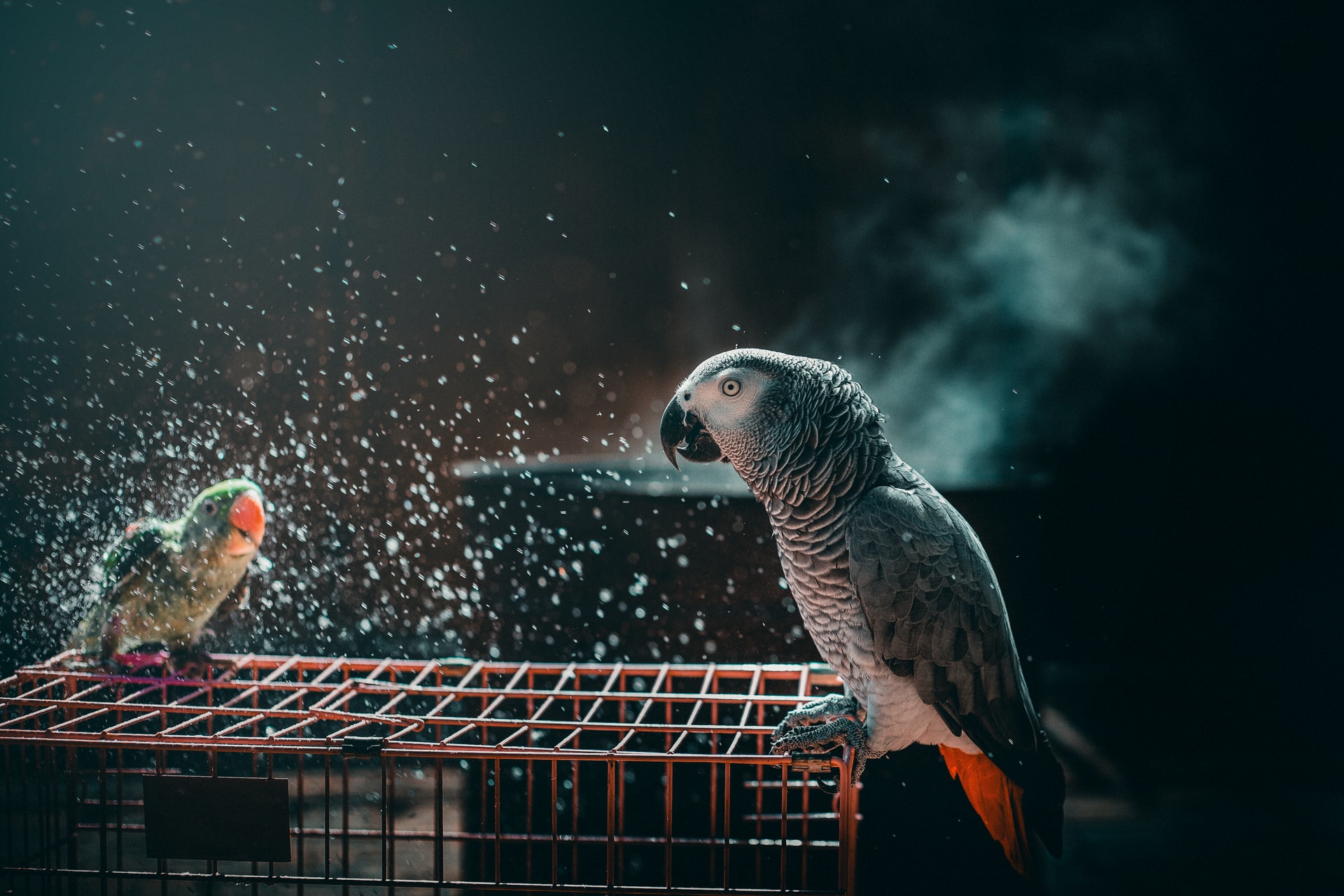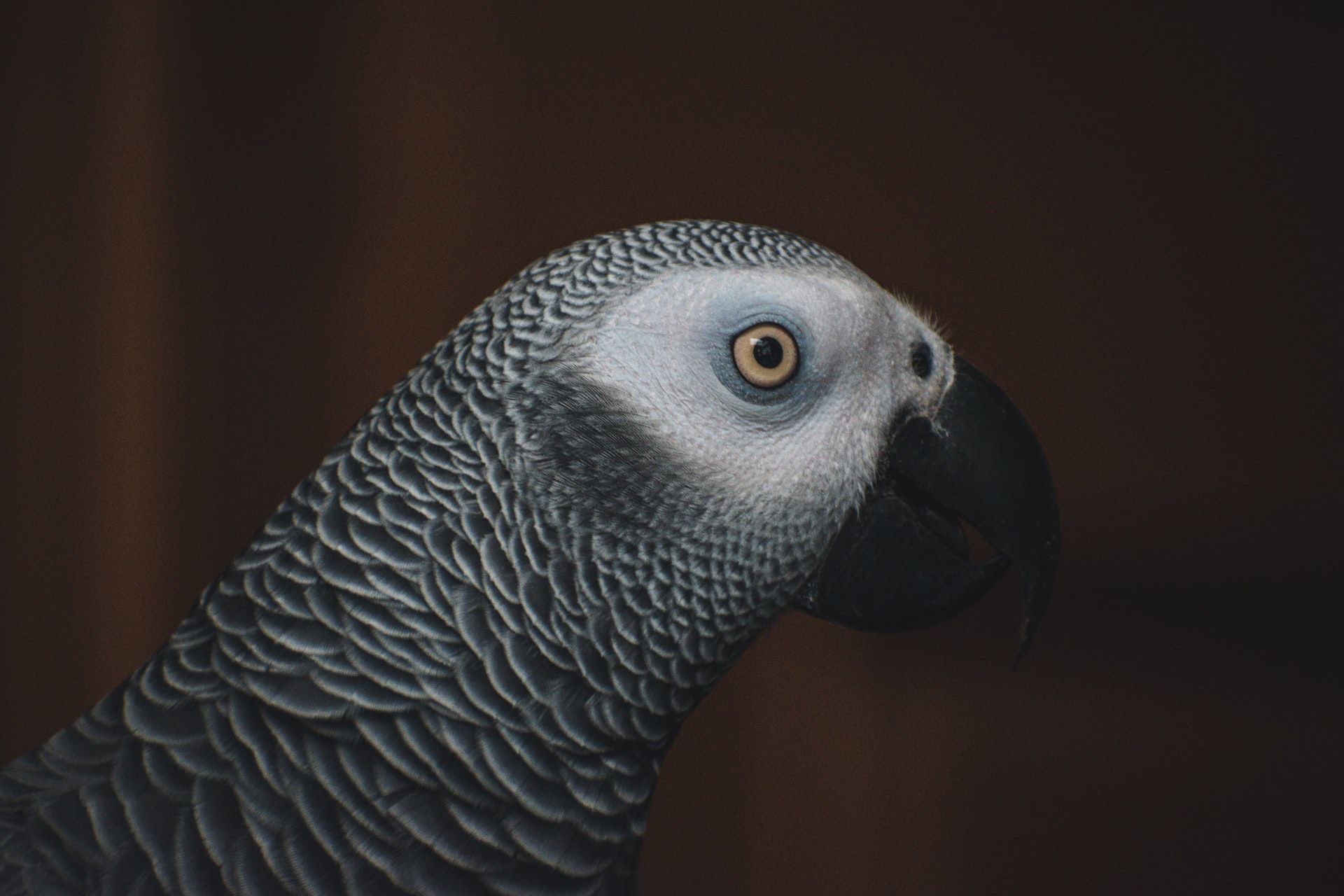How To Treat African Grey Parrot Respiratory Infections:
African Grey parrots are prone to respiratory illnesses. They can do a lot of damage to your bird if you don’t treat them. Chlamydia and Mycoplasma are the most common causes of respiratory illnesses in parrots.
Fortunately, if you act immediately, there are therapies available. In order to keep your bird healthy, keep an eye out for signs and have them checked out by a veterinarian frequently.
Aspergillosis, a fungal infection, can affect the bird’s lungs as well. If they become ill, you should seek medical attention right away.
Diagnosing The Problem Correctly:
See a veterinarian for your bird as soon as possible. Unlike humans, African Grey parrots are notoriously good at hiding their illness or injury, and respiratory disorders in African Grey parrots can be particularly dangerous.
Avian veterinarians are trained specifically in the treatment of birds by the American Veterinary Medical Association (AVMA). Your bird’s recovery depends heavily on early diagnosis and treatment.
It’s always possible to phone your veterinarian and clarify any questions about a specific condition. You should take your parrot to the vet straight away if you detect any of these symptoms (or if they last longer than a day).
Be prepared for your veterinarian to perform diagnostic procedures. When your vet first examines your bird, he or she will look at its breathing, posture, and activity level.
Your veterinarian will be able to make a more accurate diagnosis and prescribe the appropriate course of action as a result. Chlamydia, Mycoplasma, and aspergillosis are examples of bacterial infections that necessitate the attention of the veterinarian.
Describe The Following To The Veterinarian:
What Signs And Symptoms Have You Seen?
If your parrot has any additional health issues. When the signs and symptoms first appeared.
Any drug that your parrot is now on, whether it’s prescribed or otherwise. You should know if your parrot has had any previous exposure to other birds. A precise and in-depth explanation of what they eat and drink.
Acute Respiratory Infection Signs And Symptoms To Look For:
Keep an eye out for any changes in your appetite. It’s probable that your bird has a respiratory illness, but you’ll have to take him to the vet to be sure.
It’s possible that anything is wrong if your bird has abruptly stopped eating or is eating less. The same goes for your bird losing interest in its favorite foods.
Watch your bird’s respiration to see if it’s labored or rapid. Your avian veterinarian should address any breathing problems right once. Depending on the cause, your veterinarian can determine the best course of action.
Make an emergency appointment with your veterinarian to have your bird evaluated. Your bird may also make an attempt to breathe by opening its lips wide or by jutting its head forward.
Keep an eye out for excessive drinking and urinating. If the water dish empties more quickly than normal, that’s something to keep an eye on. See if your bird drinks more than normal when you replace the water in its bowl.
Because it smells like urine, you’ll probably have to replace the cage liner more frequently.
If you have any worries about your bird’s drinking or pooping habits, contact your veterinarian right once. Look for genuine sneezing and coughing, not imitations.
Find out your bird’s behaviors and keep an eye out for anything unusual. Observe how quiet it is.
When a bird is sick, it is less probable that it will exercise or be active. Even with its favorite toys, the bird may refuse to engage in play.
As intelligent birds, parrots require mental and physical stimulation to thrive. Despite the fact that inactivity can have a variety of causes, you should schedule a visit with your veterinarian to ensure that you are treating the bird properly. While your bird is breathing, keep an ear out for a clicking sound.
When the parrot inhales, it makes an audible clicking sound, which is another sign of a chronic respiratory infection. This is because the virus has damaged the bird’s vocal box. Alternatively, the bird’s tone can be altered to better suit the situation.
The bird’s mucous membranes and skin should have a bluish tint to them, which indicates an infection. Consult an avian veterinarian to diagnose and treat your parrot.
This is a sign of cyanosis, and your bird should be taken to the veterinarian right away.
Be on the lookout for a reluctance to engage in conversation. It’s not a big deal if your parrot isn’t generally a chatterbox.
This is possible that your bird’s vocalizations have slowed down due to a chronic respiratory ailment. It’s crucial to know your bird’s personality because some birds are less communicative or learn fewer words.
How To Get Rid Of An Infection In Your Bird:
Give antibiotics if a bacterial infection is the root reason. If your pet has a viral infection (such as infectious bronchitis virus), your veterinarian may recommend antibiotics to help treat or prevent secondary infections.
Since Chlamydia and Mycoplasma are responsible for the majority of respiratory illnesses in African Grey parrots, you can expect your bird to be treated with an antibiotic.
A vet can inject medicines into your parrot’s system, or you can add liquid antibiotics to your parrot’s water at home. Follow your veterinarian’s directions to the letter.
If aspergillosis was the source of the infection, treat with an antifungal. Treatment will most likely last several months, and a variety of drugs will likely be utilized during that period.
Itraconazole and amphotericin B are two antifungal drugs used to treat aspergillosis. These drugs can be injected (by your veterinarian) or given orally at home. They can even be used topically in rare situations. If your bird develops lesions, allow your veterinarian to operate on it.
Minor surgery to remove them can be performed by your veterinarian. This will aid in the recovery of your bird. It’s possible that aspergillosis will lead to lesions on your bird, making it difficult for it to heal. The lesions will be gently removed while your parrot is sedated.
Take care of any underlying health issues that could contribute to an infection before it occurs. Your veterinarian may decide to perform additional tests to rule out any underlying health issues. If your veterinarian discovers any other infections, these must be addressed before your parrot may fully recover. A compromised immune system puts your bird at risk of contracting a respiratory infection.





